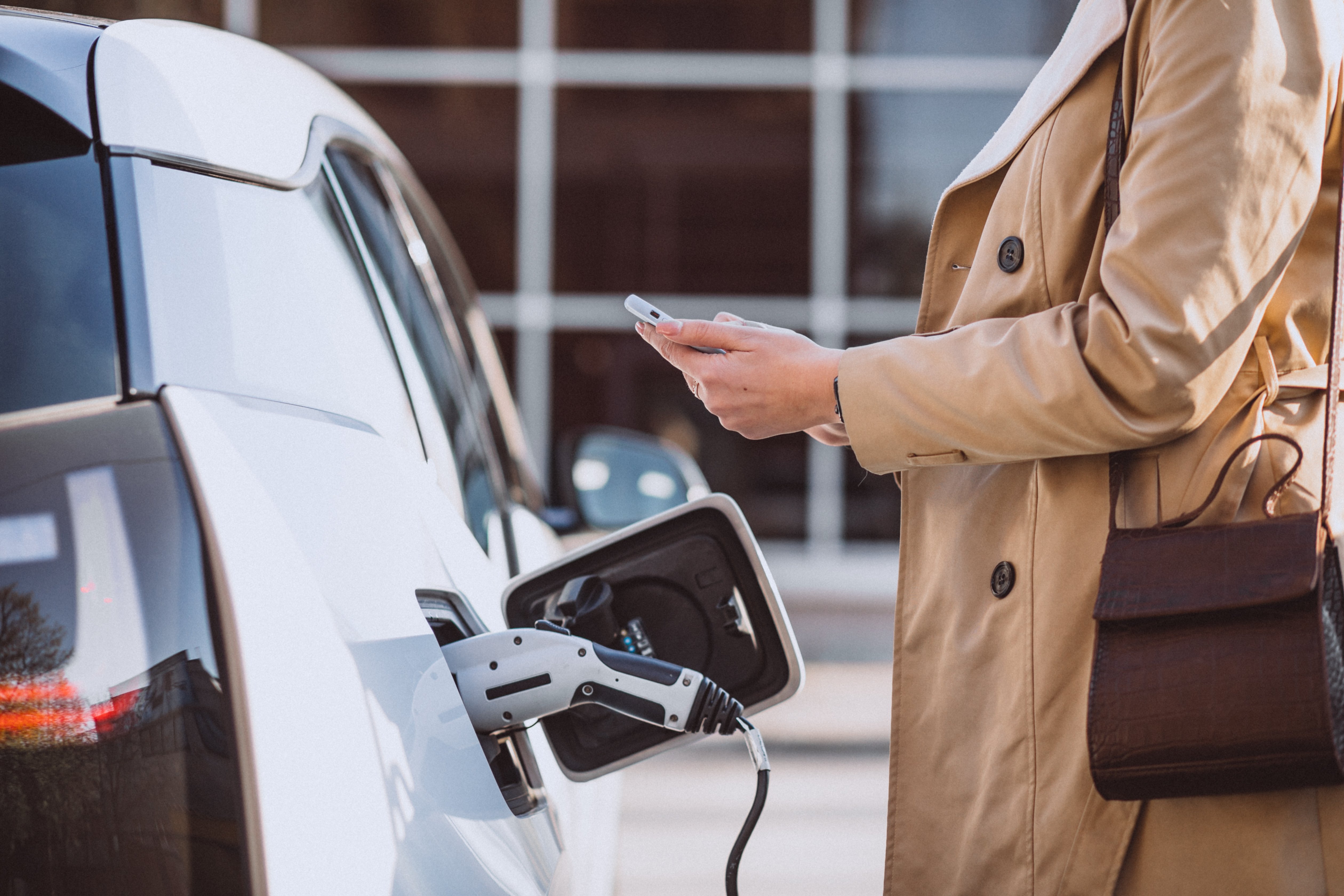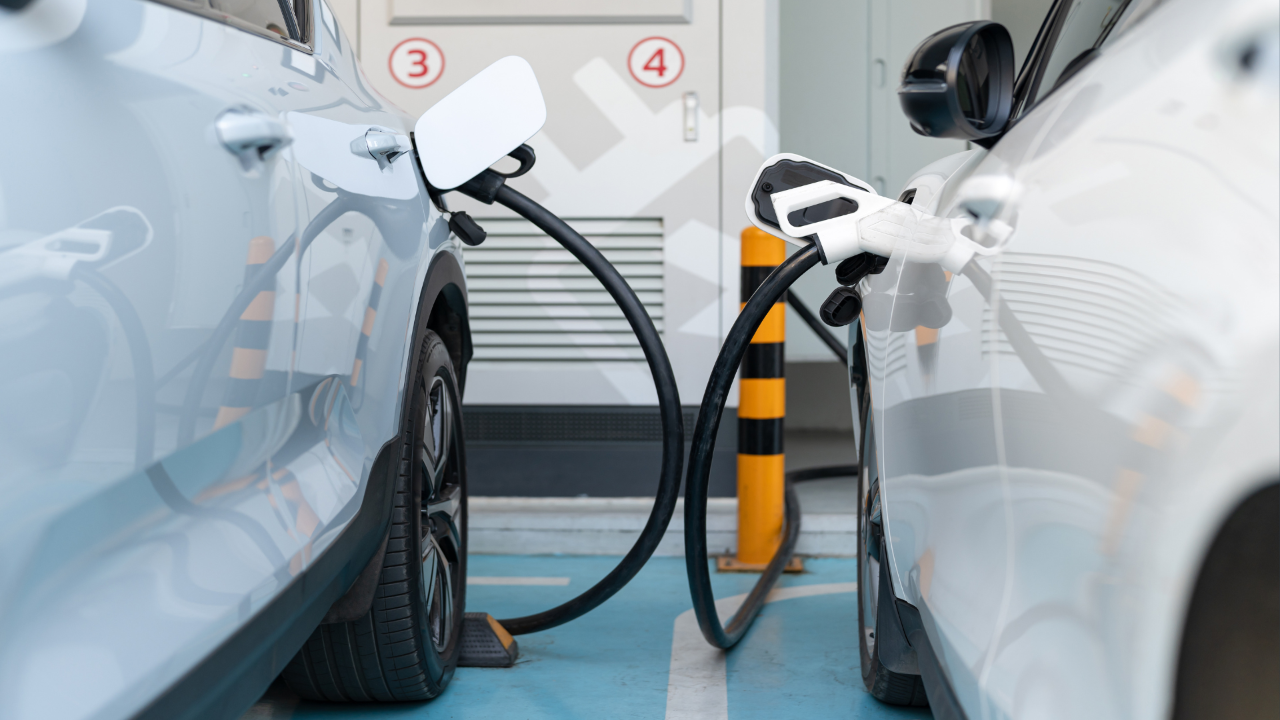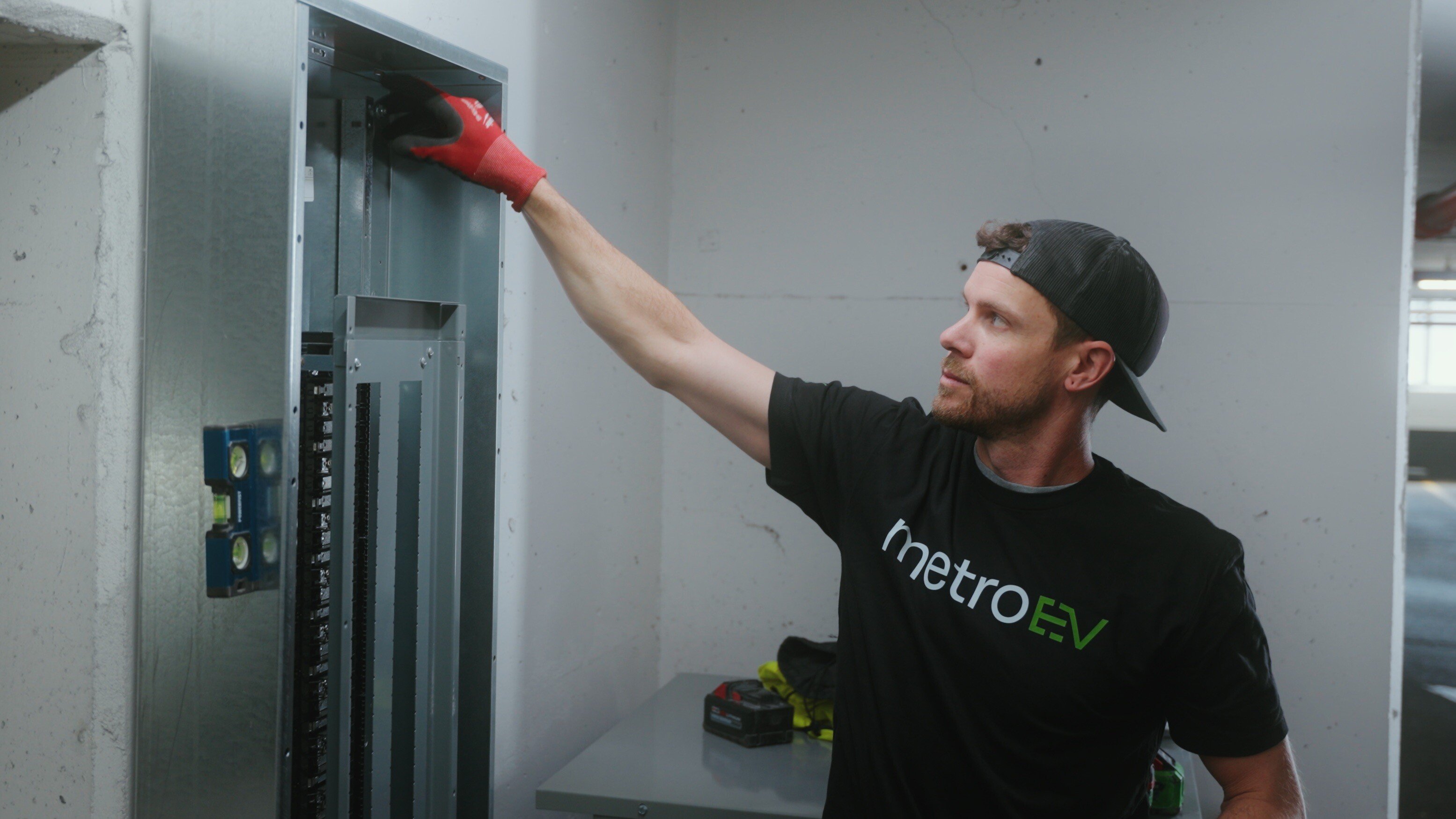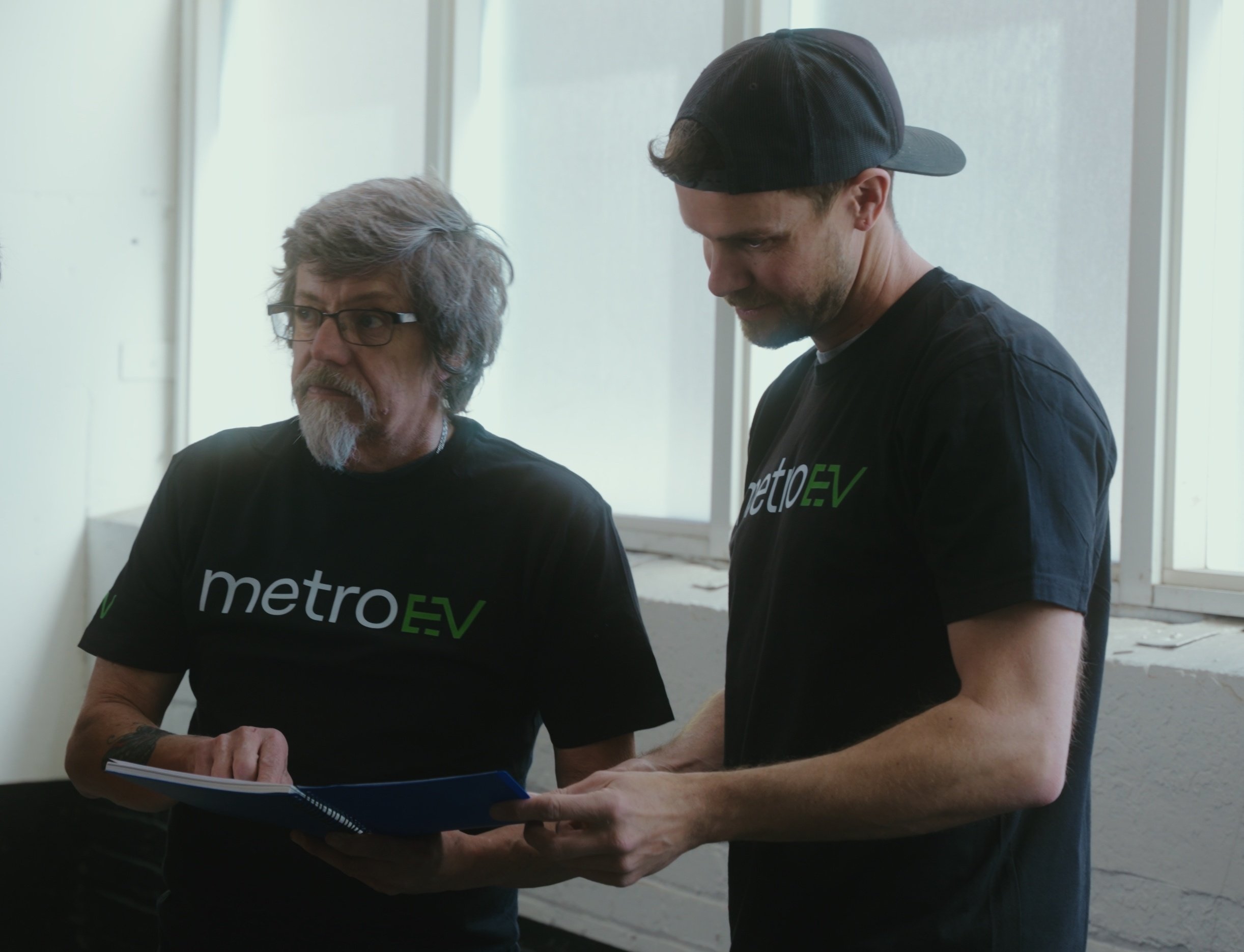With Canada’s snap 45th federal election called for April 28th, 2025, updated platforms are now available from all the major federal political parties. While issues like affordability, economy, housing and healthcare are understandably dominating Canada’s 2025 federal election, all parties have released updates to their EV policies and commitments— showing that EV policies remain of critical importance to Canada’s long-term climate goals and economic future.
.png?width=625&height=352&name=metroev%20Graphics%20(20).png)
Here's a breakdown of where the major federal political parties stand on EVs in 2025.
In Brief: Canadian Political Party EV Policies Compared
EV policy has been a mainstay feature of political party platforms for some time. Most of the detailed positions stem from earlier policy platforms, particularly from 2021 to 2023. For your convenience, we’ve summarized the federal party platforms below, updated to April 2025.
|
EV-Related Policy |
Conservative Party |
Liberal Party |
NDP |
Green Party |
|
EV Sales Mandates |
30% ZEV sales by 2030 (2021); End tax incentives and rebates for made-in-China EVs (2025) |
50% ZEV sales by 2030, 100% by 2035 (2021) |
No specific mandate; focus on incentives |
Ban sale of new ICE vehicles by 2030 (2025) |
|
Consumer Incentives |
Repealing EV mandate for revenue gain (2025) |
Reintroduce iZEV rebates up to $5,000 (2025); $1.5B iZEV expansion (2021) |
$10,000 rebate for Canadian-made ZEVs, $5,000 for others (2025) |
Exempt ZEVs from federal sales tax (2025) |
|
Charging Infrastructure |
Support for national building code changes and grid investments (2021) |
$700M to build 50,000 chargers by 2027 (2021); additional infrastructure funding (2025) |
Support for at-home charging; require EV-ready infrastructure in all new housing (2021) |
Expand charging stations at all federal facilities and lots (2025) |
|
EV-Ready Buildings & Retrofits |
Require EV wiring in national building code; encourage municipal EV parking mandates (2021) |
$100M for retrofitting residential & commercial buildings (2021) |
National building retrofit program by 2050 (2025); EV-ready infrastructure in all new housing (2021) |
Not specified |
|
Transit & Heavy-Duty Electrification |
No current commitments |
100% medium/heavy-duty ZEV sales by 2040 (2021); $200M to retrofit large trucks (2021) |
Electrify all municipal transit by 2040 (2021) |
Strong support expected; detailed commitments mainly in provincial platforms |
|
Government Fleets |
Require EV charging at all federal buildings with public parking by 2025 (2021) |
Electrify 100% of federal light-duty vehicles by 2030 (2021) |
Support electrification of public/government fleets (2021) |
Expand charging and electrification across all government facilities (2025) |
|
Manufacturing & Supply Chain Support |
$1B investment in hydrogen vehicles and fueling infrastructure (2021); Continued federal support for clean incentives (2025) |
$8B Net Zero Accelerator to support domestic ZEV/battery manufacturing (2021); support Canadian workers (2025) |
Support to increase Canadian EV production (2021) |
Not specified |
|
Hydrogen and Alternative Fuels |
$1B for EV and hydrogen manufacturing, battery production (2021); align with U.S. policy |
Not specified |
Not specified |
Not specified |
|
Battery Recycling & Sustainability |
Support for battery recycling and reuse (2021) |
Not specified |
Not specified |
Not specified |
Conservative Party
The Conservative Party's 2025 platform introduces updated policies related to electric vehicles, with a focus on economic priorities and selective support for clean technologies. This marks a shift from their 2021 platform, which offered a roadmap emphasizing investments in EV manufacturing, hydrogen development, charging infrastructure, and coordination with U.S. standards.
Key Policies:
- Repealing EV mandate for revenue gain– By repealing the EV mandate, revenue gain is estimated at $2.37B (2026-27) to $5.14B (2028-29). (Conservative Platform 2025)
- Continued federal support for clean incentives– Maintaining clean incentives for the Canadian auto sector supply chain as part of a “Technology, Not Taxes” approach. (Conservative Platform 2025)
- End tax incentives and rebates for made-in-China EVs– To end foreign economic influence and support Canadian auto workers. (Conservative Platform 2025)
- Zero-emission Vehicle (ZEV) Mandate– Introducing a federal zero-emission vehicle sales mandate based on British Columbia’s, requiring 30% of light-duty vehicles sold to be zero-emission by 2030.
(Conservative Platform 2021) - North American Alignment– Working with the Biden administration to strengthen North American vehicle emission standards. (Conservative Platform 2021)
- Electricity Grid Modernization– Investing in transmission infrastructure to ensure the electricity grid can support EV growth. (Conservative Platform 2021)
- EV Manufacturing Investment– Pledging $1 billion to support EV manufacturing, including battery production, parts manufacturing, electric trucks, and micro-mobility solutions. (Conservative Platform 2021)
- Hydrogen Innovation– Investing $1 billion in hydrogen vehicles and fueling infrastructure development. (Conservative Platform 2021)
- Charging Standards and Access– Collaborating with the U.S. on a North American charging standard, and making EV wiring mandatory in the national building code. (Conservative Platform 2021)
- New Development Requirements– Encouraging municipalities and provinces to include minimum EV charging spaces in new developments. (Conservative Platform 2021)
- Government Building Requirements– Requiring federal buildings with public parking to offer EV charging by 2025. (Conservative Platform 2021)
- Battery Recycling– Supporting battery recycling and repurposing to reduce waste and lower long-term EV costs. (Conservative Platform 2021)
Related articles on EV charging:
EV Charging Stations for Developments
EV Charging for Parking Facilities
Liberal Party
As the governing party for the past 9 years, the Liberals have been responsible for implementing Canada’s federal EV policies to date. Their updated 2025 platform introduces new commitments—including additional investment in charging infrastructure and a proposed return of consumer purchase incentives. While many of their programs began in 2021, the Liberals are positioning themselves as the party of ongoing EV expansion and domestic supply chain growth.
Key Policies:
- Expand Canada’s electric vehicle (EV) charging network by supporting the building of thousands of new stations by 2027 – They will also look at ways to reintroduce a purchase incentive worth up to $5,000 that supports Canadian workers and strengthens Canada’s domestic supply chains. (Liberal Platform 2025)
- iZEV Rebates Expansion– Investing an additional $1.5 billion to expand the iZEV rebate program, including eligibility for used vehicles, to help over 500,000 Canadians go electric(Program is currently paused). (Liberal, 2021)
- Charging Infrastructure– Investing $700 million via the Canada Infrastructure Bank to support the buildout of 50,000 EV chargers across Canada by 2027 (Applications are currently closed). (Liberal, 2021)
- ZEV Sales Mandate– Working toward a regulated requirement that 50% of all new light-duty vehicle sales be zero-emission by 2030, as a step toward the ultimate 100% ZEV sales target by 2035. (Liberal, 2021)
- EV-Ready Buildings– Providing $100 million to support charging station retrofits in existing residential and commercial buildings. (Liberal, 2021)
- Greening Government Fleet– Accelerating the electrification of the federal fleet, aiming for 100% of light-duty government vehicles to be electric by 2030, up from the previous 80% target. (Liberal, 2021)
- Heavy-Duty Vehicle Goals– Requiring 100% of medium- and heavy-duty vehicle sales to be ZEV by 2040, where feasible, plus a $200 million investment to retrofit existing large trucks and cut pollution. (Liberal, 2021)
- ZEV Manufacturing Investment– Doubling down through the $8 billion Net Zero Accelerator to attract ZEV and battery manufacturing to Canada. (Liberal, 2021)
Related articles on EV charging infrastructure:
6 Factors to Consider When Planning Your EV Charging Infrastructure For Condos
Why EV-Ready Buildings Are Key to Canada’s EV Future
New Democratic Party (NDP)
The NDP continues to focus on affordability, accessibility, and climate justice. Their 2025 platform introduces new rebate structures and building retrofit programs.
Key Policies:
- EV Rebates– Extend federal rebates for Canadians who purchase electric vehicles: $10,000 rebate for buying or leasing (over 12 months) a Canadian-manufactured ZEV, $5,000 rebate for a ZEV manufactured outside Canada. (NDP News, 2025)
- National Retrofit Program– To reduce emissions and make life more affordable. Retrofitting every building in Canada by 2050 to lower monthly electricity bills, cut climate pollution and create more local jobs. (NDP Platform 2025)
- Transit Electrification– Electrifying all municipal transit fleets by 2040, a move aimed at reducing emissions in urban areas and modernizing public infrastructure. (NDP, 2021)
- Support for Canadian Manufacturing– Providing support to make sure more ZEVs are manufactured in Canada. (NDP, 2021)
- Home Charging Support– Supporting households to install EV charging stations at home and requiring EV-ready infrastructure in all new housing developments. (NDP, 2021)
Related articles on EV charging:
EV Charging for Property Managers: 4 Key Considerations
Rising EV Demand in Canada: Why Are More Canadians Choosing EVs?
Green Party
The 2025 Green Party platform calls for EV incentives, EV charging infrastructure mandates, and a phase-out of internal combustion engines by 2030.
Key Policies:
- Expansion of the EV charging network– Expand EV charging stations at all federal facilities and parking lots. (Green Party of Canada Platform 2025)
- ZEV Purchases– Exempt new and used zero-emission vehicles from federal sales tax. (Green Party of Canada Platform 2025)
- Ban the sale of internal combustion engine passenger vehicles by 2030. (Green Party of Canada Platform 2025)
Related articles on EV charging:
Importance of Implementing Scalable EV Charging Infrastructure
How to Save Money With Smart EV Charging
What This Means for Property Owners, Developers, and EV Drivers
As Canada’s political parties set their platforms on the 2025 election, it's clear that electric vehicles—and the infrastructure to support them—remain a long-term priority. While each party differs in how they plan to accelerate the EV transition, one thing is consistent: EV charging will continue to play a major role in Canada’s transportation and building policies.

For property owners and developers, this means continued pressure and incentive to future-proof buildings, meet evolving code requirements, and offer EV-ready amenities that attract residents and tenants.
For drivers, it means new opportunities for rebates, increased charger access, and better integration of EVs into daily life.
And for businesses, it signals that infrastructure investment, fleet electrification, and sustainability alignment will remain key areas of support or regulation.
Ready to plan your EV charging strategy?
Whether you’re retrofitting an existing condo, planning a new development, or looking to upgrade a commercial or public charging site, we help you navigate the funding programs, requirements, and technical options that align with where Canada is headed. With the right EV charging infrastructure in place, you can meet future demand—and benefit from it.
Contact metroEV to future-proof your infrastructure—no matter where Ontario’s politics go.

Learn more about EV charging:
Rising EV Demand in Canada: Why Are More Canadians Choosing EVs?
How an EV Power Management Device Can Save Energy and Money
How to Save Money With Smart EV Charging

AUTHOR
Isaac Klein
Isaac Klein, Vice President at metroEV, leads the development and deployment of electric vehicle (EV) charging solutions and EV charger networks. With expertise in sustainable energy and EV technology, Isaac focuses on creating scalable and flexible EV infrastructure that meets the growing market demand. His leadership ensures that metroEV delivers reliable, future-ready EV charger networks that support the transition to electric mobility and clean energy.








